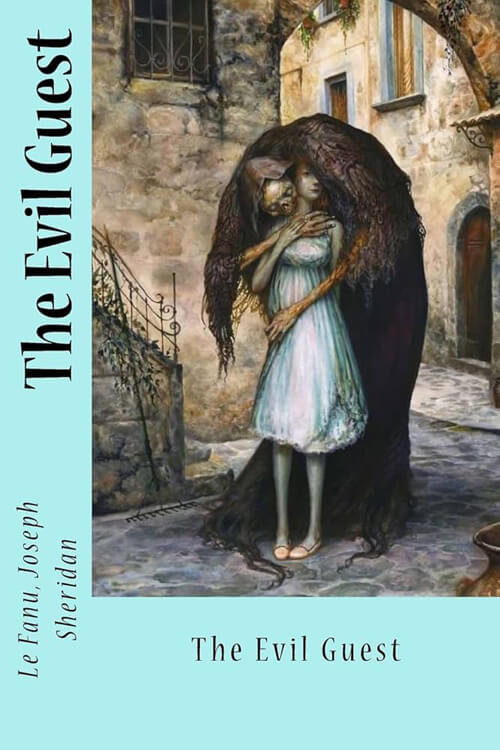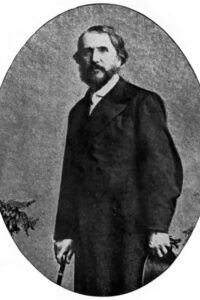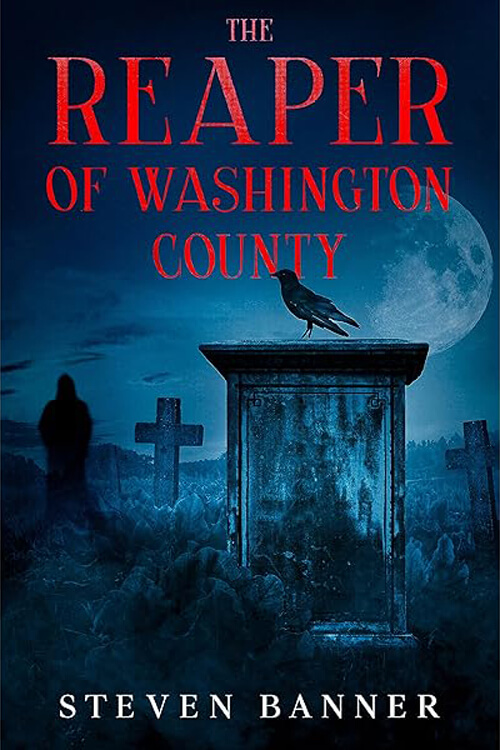
The Evil Guest
About sixty years ago, and more than twenty miles from the ancient town of Chester, in a southward direction, there stood a large and, even then, an old-fashioned mansion-house. It lay amid a demesne of considerable extent and richly wooded with venerable timber, but apart from the somber majesty of these giant groups and the varieties of the undulating ground on which they stood, there was little that could be deemed attractive in the place. A certain air of neglect and decay, and an indescribable gloom and melancholy, hung over it. In the darkness, it seemed darker than any other tract; when the moonlight fell upon its glades and hollows, they looked spectral and awful, with a sort of churchyard loneliness; and even when the blush of the morning kissed its broad woodlands, there was a melancholy in the salute that saddened rather than cheered the heart of the beholder.
We shall call this antique, melancholy, and neglected place Gray Forest for distinctness sake. It was then the property of the younger son of a nobleman, once celebrated for his ability and his daring, but who had long since passed to that land where human wisdom and courage avail naught. The representative of this noble house resided at the family mansion in Sussex, and the cadet, whose fortunes we mean to sketch in these pages, lived upon the narrow margin of an encumbered income in a reserved and unsocial discontent, deep among the solemn shadows of the old woods of Gray Forest.
The Hon. Richard Marston was now somewhere between forty and fifty years of age—perhaps nearer the latter; he still, however, retained, in an eminent degree, the traits of manly beauty, not the less remarkable for its unquestionably haughtyand passionate character. He had married a beautiful girl, of good family, but without much money, somewhere about eighteen years before; and two children, a son and a daughter, had been the fruit of this union. The boy, Harry Marston, was at this time at Cambridge; and his sister, scarcely fifteen, was at home with her parents, and under the training of an accomplished governess, who had been recommended to them by a noble relative of Mrs. Marston. She was a native of France, but thoroughly mistress of the English language, and, except for a foreign accent, which gave a certain prettiness to all she said, she spoke it as perfectly as any native Englishwoman. This young Frenchwoman was eminently handsome and attractive. Expressive, dark eyes, a clear olive complexion, small even teeth, and a beautifully-dimpling smile, more perhaps than a strictly classic regularity of features, were the secrets of her unquestionable influence, at first sight, upon the fancy of every man of taste who beheld her.
Read or download Book
Joseph Sheridan Le Fanu
Joseph Thomas Sheridan Le Fanu (28 August 1814 – 7 February 1873) was an Irish writer of Gothic tales, mystery novels, and horror fiction. He was a leading ghost story writer of his time, central to the development in the Victorian era. M. R. James described Le Fanu as “absolutely in the first rank as a writer of ghost stories.” Three of his best-known works are the locked-room mystery Uncle Silas, the lesbian vampire novella Carmilla, and the historical novel The House by the Churchyard.
Work
Le Fanu worked in many genres but remains best known for his horror fiction. He was a meticulous craftsman and frequently reworked plots and ideas from his earlier writing in subsequent pieces. Many of his novels, for example, are expansions and refinements of earlier short stories. He specialized in tone and effect rather than “shock horror” and liked to leave important details unexplained and mysterious. He avoided overt supernatural effects: in most of his major works, the supernatural is strongly implied, but a “natural” explanation is also possible. The demonic monkey in “Green Tea” could be a delusion of the story’s protagonist, who is the only person to see it; in “The Familiar,” Captain Barton’s death seems to be supernatural but is not witnessed, and the ghostly owl may be a real bird. This technique influenced later horror artists, both in print and on film (see, for example, the film producer Val Lewton’s principle of “indirect horror”). Though other writers have since chosen less subtle techniques, Le Fanu’s finest tales, such as the vampire novella Carmilla and the short story “Schalken the Painter”, remain some of the most powerful in the genre. He had an enormous influence on one of the 20th century’s most important ghost story writers, M. R. James, and although his work fell out of favor in the early part of the 20th century, towards the end of the century interest in his work increased and remains comparatively strong.
The Purcell Papers
His earliest twelve short stories, written between 1838 and 1840, are the literary remains of an 18th-century Catholic priest called Father Purcell. They were published in the Dublin University Magazine and were later collected as The Purcell Papers (1880). They are primarily set in Ireland and include some classic stories of gothic horror, gloomy castles, supernatural visitations from beyond the grave, madness, and suicide.






